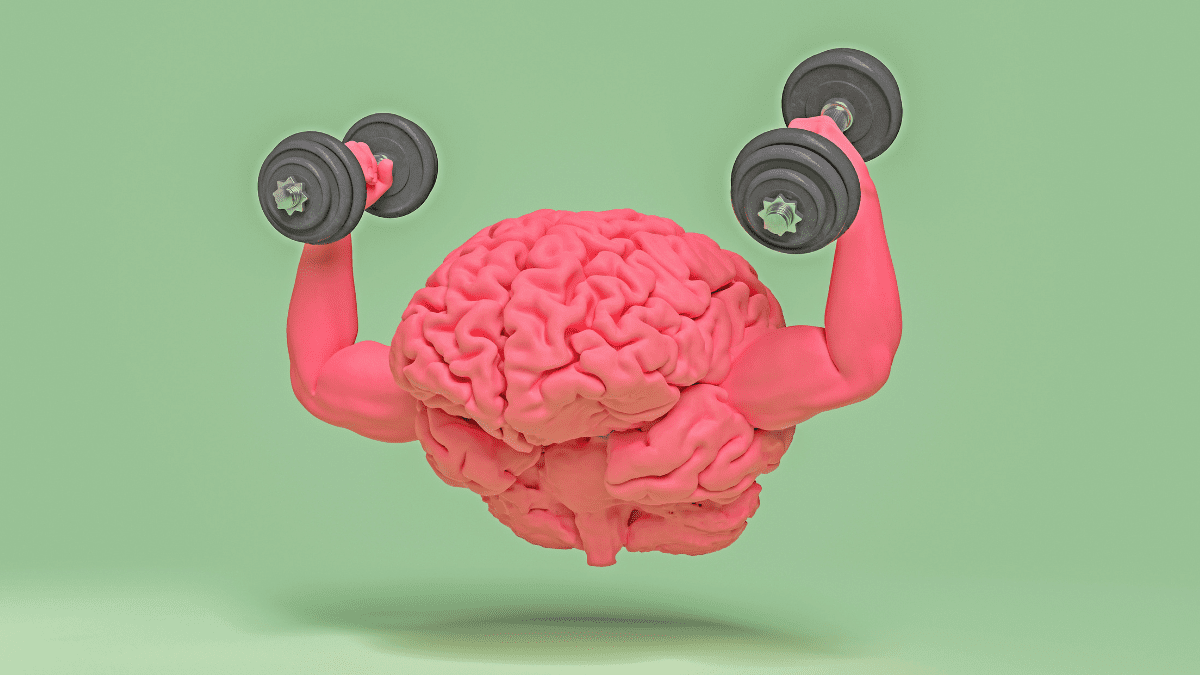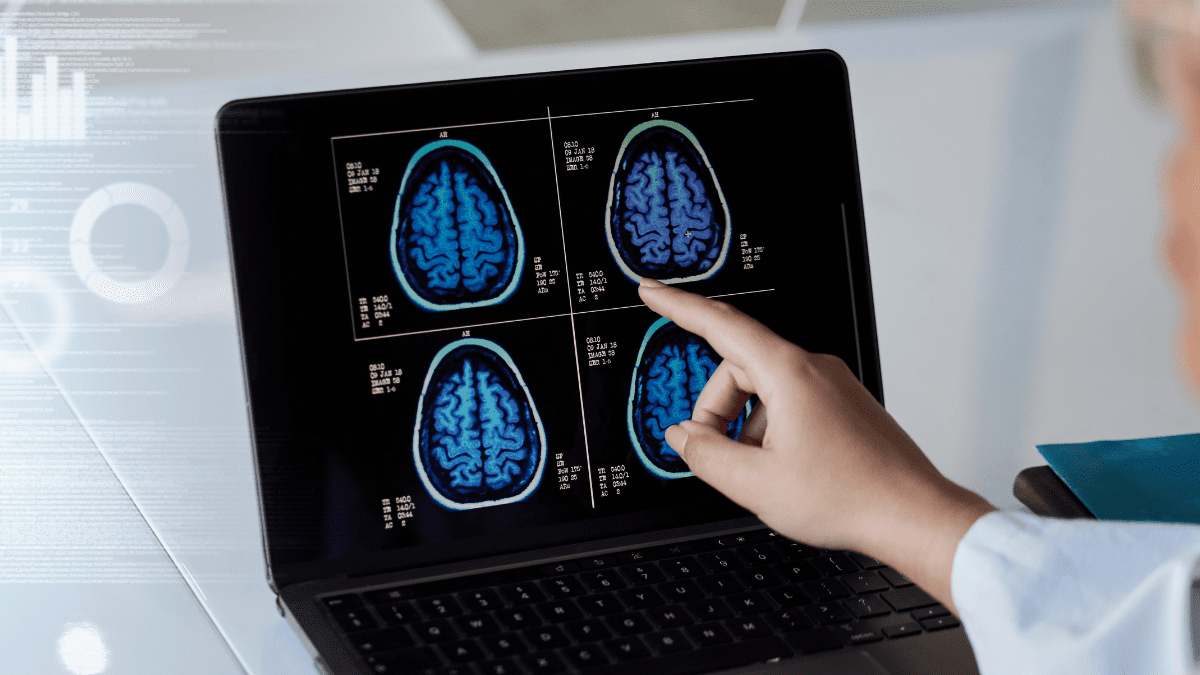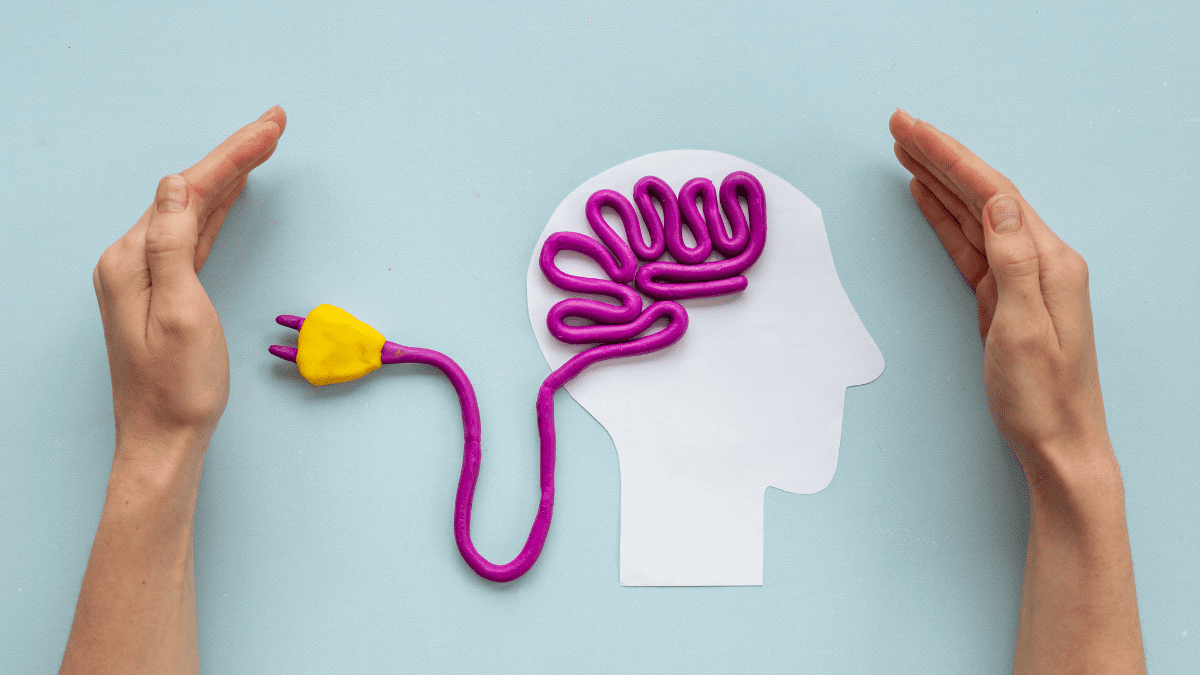Gut-Brain Connection: The Secret to a Sharper, Happier Mind
Your gut controls digestion, mood, and mind. The gut-brain connection shapes mental clarity. Learn how to heal your gut naturally for better focus, improved well-being, and a healthier, happier life!

Do you ever feel mentally foggy or struggle to focus? The gut-brain connection might be the reason. Your gut and brain communicate constantly. When your gut is unhealthy, your mind suffers. Poor digestion, bloating, and inflammation can lead to anxiety, stress, and brain fog.
Science shows that gut bacteria influence mood and cognitive function. A balanced gut improves mental clarity, memory, and emotional stability. However, an imbalanced gut can do the opposite. Fixing your gut may be the key to a sharper mind and a calmer mood.
Your brain is always changing. Just like the gut, it adapts based on your habits. Learn how to rewire your brain for better mental health with these powerful neuroplasticity exercises. Healing your gut and strengthening your brain go hand in hand.
Now, let’s explore how the gut-brain connection affects your mind and what you can do to restore balance!
What is the Gut-Brain Connection?
The gut-brain connection is the communication network between your digestive system and brain. This link controls mood, memory, and mental clarity. When your gut is balanced, your brain functions better. However, if your gut microbiome is unhealthy, your mind suffers.
Your gut contains trillions of bacteria. These microbes help digest food, absorb nutrients, and produce essential brain chemicals. In fact, gut bacteria play a key role in regulating emotions and cognitive function. A diverse microbiome supports mental health, while an imbalanced one can lead to stress, anxiety, and brain fog.
How Does the Gut Send Signals to the Brain?
Your gut and brain communicate in several ways. One major pathway is the vagus nerve, which connects the digestive system to the brain. This nerve sends constant updates about gut health. If the gut is inflamed, the brain receives distress signals. As a result, you may experience stress, fatigue, or difficulty focusing.
Neurotransmitters also play a role. The gut produces serotonin, dopamine, and GABA, which control mood and mental clarity. In fact, scientists have found that 90% of serotonin is made in the gut. Low serotonin levels are linked to depression and anxiety.
The Microbiome’s Impact on Mental Health
A healthy gut microbiome reduces inflammation, regulates stress hormones, and sharpens focus. However, poor diet, stress, and antibiotics can harm gut bacteria. This imbalance leads to brain fog, mood swings, and even depression.
Studies show that people with anxiety and depression often have less diverse gut bacteria. This suggests that improving gut health may reduce mental health symptoms. Probiotics, fiber-rich foods, and stress management can help restore balance.
Understanding the gut-brain connection is the first step toward better mental health. Next, let’s explore how gut health affects mental clarity and why it matters.
How Gut Health Affects Mental Clarity
The gut-brain connection plays a major role in cognitive function. A healthy gut improves focus, memory, and emotional balance. However, an imbalanced gut can lead to brain fog, stress, and trouble concentrating.
When gut bacteria are diverse and balanced, the brain functions better. They produce essential neurotransmitters like serotonin and dopamine. These chemicals regulate mood, motivation, and mental clarity. On the other hand, an unhealthy gut can disrupt these signals, leading to sluggish thinking and low energy.
Neurotransmitter Production and Mental Clarity
Your gut produces a large portion of the body’s neurotransmitters. Serotonin, responsible for happiness and relaxation, is mostly made in the digestive system. Dopamine, which boosts motivation and focus, also depends on gut health.
If gut bacteria are unbalanced, neurotransmitter production suffers. This can lead to difficulty focusing, low mood, and chronic fatigue. Research suggests that gut microbiota influence brain function and mental performance. Improving gut health may enhance concentration and reduce mental fog.
Inflammation and Brain Fog
Chronic inflammation in the gut can trigger brain inflammation. This weakens communication between neurons and slows cognitive processing. Many people experience forgetfulness, confusion, and poor decision-making as a result.
Processed foods, sugar, and artificial additives increase gut inflammation. These foods feed harmful bacteria, which release toxins into the bloodstream. Over time, this disrupts brain function and worsens focus.
A gut-brain connection for better mental clarity starts with reducing inflammatory foods. Replacing them with fiber-rich vegetables, fermented foods, and healthy fats helps restore balance.
Gut Dysbiosis and Stress Response
Gut dysbiosis occurs when bad bacteria outnumber good bacteria. This imbalance affects the body’s ability to handle stress. A weak gut microbiome increases cortisol levels, making anxiety and brain fog worse.
Managing stress is essential for gut health. Practices like deep breathing, meditation, and proper sleep improve microbiome balance. When the gut is healthy, the brain responds better to challenges and maintains clarity.
Understanding the gut-brain connection reveals why mental clarity depends on gut health. Next, let’s explore the key signs that your gut may be harming your brain.

Signs Your Gut Health is Harming Your Brain
The gut-brain connection influences more than digestion. When gut health declines, mental clarity, mood, and focus suffer. Many people do not realize their symptoms are linked to an imbalanced gut. Recognizing the signs early can help prevent further damage.
Brain Fog and Trouble Concentrating
A sluggish gut leads to a sluggish brain. When gut bacteria are imbalanced, communication between the gut and brain weakens. This slows down cognitive function. Many people experience chronic brain fog, forgetfulness, and trouble focusing.
An unhealthy gut also increases inflammation, which disrupts neural pathways. Studies show that gut microbiome imbalance contributes to cognitive decline and memory problems. Improving gut health may restore mental sharpness.
Mood Swings and Anxiety
The gut produces neurotransmitters that regulate mood. If gut bacteria are unbalanced, serotonin and dopamine levels drop. This can lead to mood swings, irritability, and increased anxiety.
High cortisol levels also weaken the gut-brain link. When stress levels rise, gut bacteria struggle to maintain balance. This creates a cycle where stress worsens gut health, which in turn fuels anxiety and mental distress.
Digestive Issues and Mental Health
A weak gut microbiome affects both digestion and mental clarity. Common symptoms include bloating, gas, constipation, or frequent diarrhea. These signs indicate that gut bacteria are struggling to function properly.
Toxins from bad bacteria can enter the bloodstream, leading to systemic inflammation and mental fatigue. A strong gut-brain connection helps the body detox naturally. However, when gut health declines, the brain suffers as well.
Fatigue and Low Energy
An imbalanced gut prevents proper nutrient absorption. This can lead to chronic fatigue, sluggishness, and low motivation. Without essential vitamins and minerals, brain function declines.
A poor gut-brain connection also affects sleep quality. Bad gut bacteria interfere with melatonin production, making it harder to fall and stay asleep. A well-functioning gut promotes deep rest and higher energy levels.
Recognizing these warning signs is the first step toward healing. Next, let’s explore how to restore balance and improve the gut-brain connection for better mental clarity.
How to Heal Your Gut for Mental Clarity
A strong gut-brain connection is key to better focus, mood, and energy. When gut health improves, mental clarity follows. Simple changes in diet and lifestyle can restore balance and boost brain function.
Step 1: Eat Gut-Friendly Foods
Food shapes the gut microbiome. A diet rich in fiber, probiotics, and prebiotics strengthens good bacteria. Fermented foods like kimchi, sauerkraut, and yogurt provide probiotics that support digestion and brain health.
Prebiotic foods, such as garlic, onions, and bananas, feed beneficial bacteria. Fiber from vegetables and whole grains promotes a diverse microbiome. Research suggests that a gut-friendly diet improves mental well-being. Eating the right foods can enhance focus and reduce anxiety.
Step 2: Cut Out Gut-Damaging Foods
Processed foods, refined sugars, and artificial sweeteners harm gut bacteria. They increase inflammation and disrupt neurotransmitter production. Alcohol and excessive caffeine also weaken the gut lining, leading to poor digestion.
Eliminating these triggers allows gut bacteria to rebalance. A clean diet strengthens the gut-brain connection, making it easier to concentrate and stay mentally sharp.
Step 3: Manage Stress for a Healthy Gut
Stress weakens gut health. High cortisol levels disrupt the microbiome, making digestion harder. Meditation, deep breathing, and yoga help calm the nervous system. A relaxed gut leads to a calmer mind.
Taking breaks from screens and social media also reduces stress. Digital overload affects gut bacteria by increasing anxiety and mental fatigue. A balanced lifestyle supports both gut and brain health.
Step 4: Improve Sleep Habits
Sleep is essential for gut repair. Poor sleep weakens digestion, causing bloating and fatigue. The body restores its microbiome overnight. A bedtime routine without screens, caffeine, or heavy meals improves gut health.
A healthy gut-brain connection depends on quality sleep. Deep rest allows neurotransmitters to function properly, enhancing focus and emotional balance.
Healing the gut requires patience, but small changes make a big difference. Next, let’s explore the science behind how gut healing impacts brain function.
The Science Behind Gut Healing & Brain Function
A strong gut-brain connection is essential for mental clarity. When the gut is balanced, the brain functions at its best. Scientific research confirms that gut bacteria play a crucial role in cognitive health, memory, and mood regulation.
How Gut Bacteria Influence Brain Function
The gut microbiome produces neurotransmitters like serotonin, dopamine, and GABA. These chemicals control emotions, focus, and mental energy. When gut bacteria are imbalanced, neurotransmitter production drops. This can lead to brain fog, anxiety, and poor concentration.
Studies show that gut microbiota directly impact brain function and emotional health. A diverse microbiome supports better decision-making and faster cognitive processing.
The Role of Inflammation in Mental Clarity
Chronic gut inflammation affects the brain. When the gut lining is damaged, toxins enter the bloodstream. This triggers inflammation, which weakens brain function. Many people with gut issues experience forgetfulness and trouble focusing.
A diet rich in fiber, probiotics, and anti-inflammatory foods reduces gut inflammation. Healing the gut strengthens the gut-brain connection, allowing clearer thinking and better mood stability.
Gut Bacteria and Stress Response
Stress weakens gut health. A damaged gut microbiome leads to increased cortisol production. High cortisol levels disrupt brain chemistry, making it harder to focus. Managing stress through meditation, breathwork, and movement helps restore balance.
Research confirms that a healthy gut supports emotional resilience and reduces mental fatigue. When the gut thrives, the brain is more adaptable to stress.
Why a Healthy Gut Improves Memory and Focus
A strong gut-brain connection enhances memory retention and cognitive speed. Gut bacteria influence neuroplasticity, the brain’s ability to form new connections. A well-balanced microbiome helps with learning and mental performance.
Healing the gut is one of the most effective ways to sharpen the mind. Next, let’s summarize key takeaways and how to apply them in daily life.

Key Takeaways: How to Apply Gut Healing for Mental Clarity
A strong gut-brain connection is essential for mental clarity, focus, and emotional balance. When the gut is healthy, the brain thrives. However, an imbalanced gut can lead to brain fog, stress, and anxiety. The good news is that healing your gut is possible.
Prioritize Gut-Friendly Foods
What you eat shapes your gut microbiome. Nutrient-rich foods like fermented vegetables, yogurt, and fiber-packed grains feed good bacteria. Meanwhile, processed foods and sugar weaken gut health. A simple diet shift can improve mood and focus.
Reduce Stress for a Healthy Gut
Stress disrupts digestion and weakens the gut-brain connection. Deep breathing, meditation, and exercise help lower stress hormones. A calmer gut leads to a clearer mind. Small relaxation habits make a big impact over time.
Improve Sleep to Boost Gut and Brain Function
Quality sleep restores gut bacteria and strengthens mental clarity. Avoid screens before bed, limit caffeine in the evening, and maintain a consistent sleep schedule. Better rest supports both gut health and cognitive performance.
Stay Hydrated and Move More
Water aids digestion and flushes out toxins. Staying hydrated keeps gut bacteria balanced. Movement also plays a role. Regular exercise supports gut function and enhances mental sharpness. Even short walks improve digestion and reduce stress.
Small Changes, Big Results
Healing the gut does not require drastic changes. Simple daily habits improve the gut-brain connection over time. Eat better, manage stress, sleep well, and stay active. A balanced gut leads to a sharper, more focused mind.
Your gut holds the key to mental clarity. Start today, and your brain will thank you!







